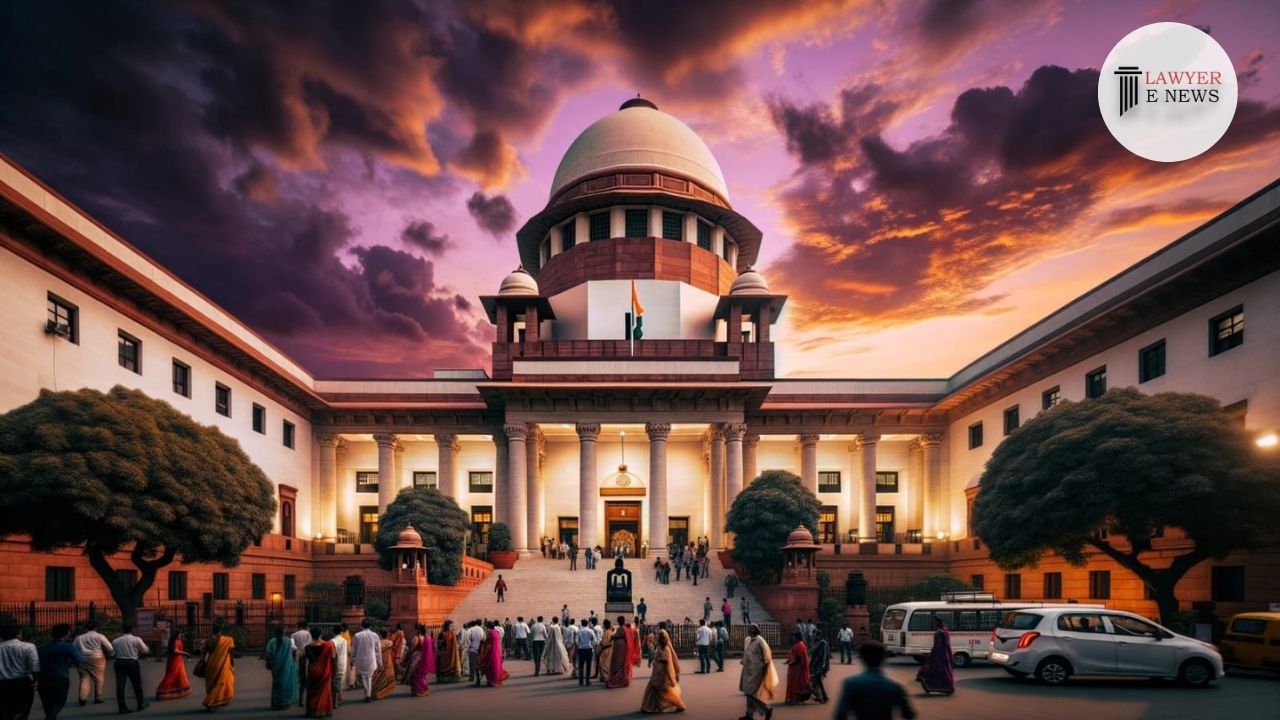-
by Admin
15 February 2026 2:36 AM



On dated 17th Feb 2023 Supreme Court upheld the conviction in a murder Case (Ram Gopal Vs State of Madhya Pradesh D.D. 17 Feb 2023) and held that the last seen theory, when combined with other circumstances, can be a strong piece of evidence in a case based on circumstantial evidence. The accused has a duty to provide an explanation under Section 106 of the Evidence Act regarding the circumstances under which the death occurred. Failure to provide an explanation or providing a false one can be used against the accused in court.
Details of the Case: The petitioner-accused, who was the ex-Sarpanch of the village Har Gangoli, was convicted for the offence under Section 302 IPC and sentenced to life imprisonment with a fine of Rs. 5,000/- by the Sessions Court. The complainant had reported that the petitioner had taken his uncle Pratap Singh Sikarwar and his dead body was found on the road with injuries on his head and ear. The chargesheet was submitted against the petitioner and three other accused. The Sessions Court convicted the petitioner and acquitted the other three accused. Accusations against the petitioner: The complainant alleged that his uncle was taken by the petitioner and his dead body was found with injuries on the head and ear, and blood oozing out. The chargesheet was submitted against the petitioner and three other accused.
The Sessions Court convicted the petitioner for the offence under Section 302 IPC and sentenced him to life imprisonment with a fine of Rs. 5,000/-. The other three accused were acquitted.
The petitioner appealed to the High Court, which confirmed the conviction and sentencing of the petitioner and dismissed the appeal.
The present petition is filed to challenge the judgment and order passed by the High Court of Madhya Pradesh
Appellant argument: Contended that the prosecution had failed to prove the entire chain of circumstances leading to the guilt of the petitioner-accused. Trial Court had erred in convicting the petitioner based solely on the theory of "last seen together" and the alleged recovery of a weapon axe from the petitioner could not be a ground for conviction.
There was a big-time gap between the time when the petitioner was last seen with the deceased and the time when the dead body was recovered. The doctor who carried out the post-mortem did not opine that the injuries on the dead body were possible with the weapon allegedly recovered from the petitioner. Additionally, there was no animosity between the petitioner and the deceased, and their relations were quite cordial.
The benefit of doubt deserved to be given to the petitioner, particularly in the absence of examination of any independent witness, when the other three co-accused had been acquitted on the same grounds.
Prosecution/Respondent argument: That since there were concurrent findings of guilt recorded by the courts below against the petitioner, this Court should not interfere with the same. Further argued that the petitioner had failed to explain in his statement under Section 313 when and how he departed from the company of the deceased, despite being with him during the previous evening of his death. Therefore, both courts had rightly held this circumstance to be adverse to the petitioner.
Supreme Court found that the entire case against the accused is based on circumstantial evidence, and therefore, the entire chain of circumstances must be completely proved to lead to the guilt of the accused. The prosecution has established that the accused was last seen with the deceased and thus he was expected to offer an explanation as to when and how he parted ways with the deceased.
Supreme Court observed that the burden of proving any fact within a person's knowledge lies upon them, and failure to provide such information may be used against the accused as an additional link in the chain of circumstances. In a case based on circumstantial evidence, the accused's failure to provide an explanation is a crucial factor, especially when the theory of "last seen together" is established by the prosecution.
Supreme Court while discussed the last seen theory stated that when combined with other circumstances, can be a strong piece of evidence in a case based on circumstantial evidence. The accused has a duty to provide an explanation under Section 106 of the Evidence Act regarding the circumstances under which the death occurred. Failure to provide an explanation or providing a false one can be used against the accused in court.
Supreme Court held that it was proven that the death was homicidal, and the accused was seen with the deceased on the day of the murder. The time between when the accused was last seen with the deceased and when the corpse was found was relatively short, and the accused did not offer an explanation for their separation. Additionally, evidence of enmity between the accused and the deceased was found, and a weapon allegedly used in the murder was recovered from the accused. Conviction Upheld . Appeal Dismissed.
Ram Gopal Vs State of Madhya Pradesh
